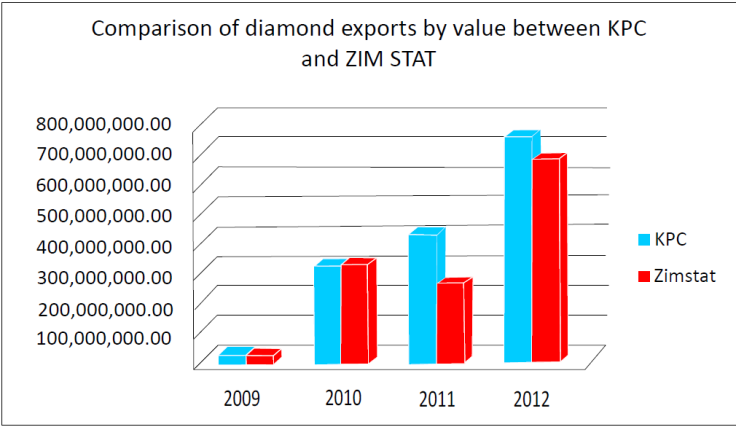Transparency is a “buzzword” to the discourse of ensuring that resource rich communities claim their fair share of mineral wealth. This blog focuses on public disclosure of diamond statistics by the Kimberly Process (KP), clearly, making a call to Australia, the current KP chair and KP host for 2017, to make KP public statistics more relevant to diamond rich communities in terms of holding government and mining companies accountable. For instance, to Marange, a diamond rich community in Zimbabwe. Transparency deficits in the diamond industry, without doubt, are aptly summed by the “missing $15 billion” from Marange diamonds.
The Kimberly Process was created in 2002 out of the desire to stem the illicit diamonds or bloody diamonds that were fueling conflicts in countries like Sierra Leone. KP is a multi-stakeholder grouping composed of governments, industry and civil society organisations. Given that Africa accounts for nearly 65% ($8.5 billion) of the world’s estimated $13 billion annual rough diamond production by value, the KP’s potential impact on mineral resource governance in Africa is undoubted. Exactly the reason why the African Mining Vision identified the importance of international resource monitoring bodies such KP along with other continental bodies like the African Peer Review Mechanism (APRM).
Public statistics on country by country diamond production and exports by volume and value have been particularly helpful in countries where transparency deficits are quite glaring like Zimbabwe. Civil Society Organisations (CSOs) such as the Zimbabwe Environmental Law Association (ZELA) used KP data to carry out a public reconciliation of diamonds production and export data with government sources such as Zimbabwe National Statistics Agency.

Source: Page 23; Tracking the Trends: An Assessment of Diamond Mining Sector Tax Contributions to Treasury with Particular Reference to Marange Diamond Fields (2013)
The public reconciliation revealed a mismatch between data from government sources and data from the KP public statistics. Thus, without an investigation and a public explanation on the discrepancies, it is difficult for the public to have confidence in the disclosed data.
Interestingly, Publish What You Pay (PWYP) Zimbabwe, a coalition of CSOs working on transparency and accountability in the governance of mineral resources is equipping affected communities with data literacy skills, Marange community included. Community Based Organisations (CBOs) like Marange Development Trust (MDT) are now accessing KP public statistics on diamonds. However, the challenge is that KP data only show aggregated data on country diamond production and exports by volume and value.
It is difficult to extract data on diamond data per mining company. Moreover, interesting information such as various taxes made to local and central government cannot be gleaned from KP public statistics. Sadly, MDT noted that Marange diamond mining companies were literally not paying local taxes to the local government, Mutare rural district council. This anomaly was exposed after MDT analysed the 2015 annual financial statements for Mutare rural district council.
Off course, the government of Zimbabwe publicly admitted that diamond mining activities in Marange are opaque and barely paying a fair share of taxes. Consequently, government moved in to consolidate the diamond mining activities in the quest to improve transparency and accountability. One year down the line, data needed by communities to hold to account government and the Zimbabwe Consolidated Diamond Company is still not accessible.
The KP may be seized with the debate on expanding its mandate from bloody diamonds to include community rights violations. But, KP should also seriously consider public disclosure of data diamond production and export data per mining project. This should also extend taxes paid to various government entities by diamond mining companies.
Australia, the current KP chair must take lead to advance greater transparency and accountability in the diamond industry. As an offshoot, I would like to congratulate Shamiso Mtisi, ZELA’s head of programmes for being appointed as an advisor to the KP chair. Hopefully, he will use his position to influence KP reforms that will make the KP public statistics more valuable to civil society and communities for demanding accountability.

May 3, 2017 at 2:24 pm
Very educative Mr Mukasiri but is Kimbrely Process still existing and are the locals benefiting from it
LikeLike
May 3, 2017 at 2:47 pm
KP is existing, it’s value to communities is questionable
LikeLike